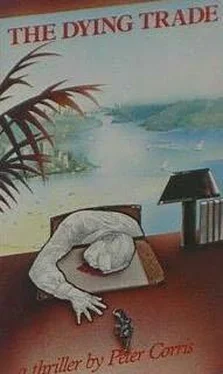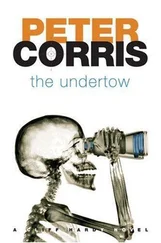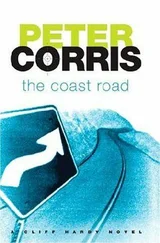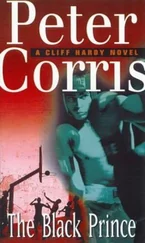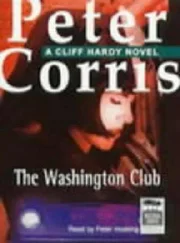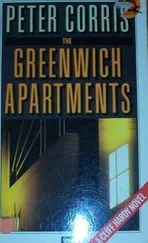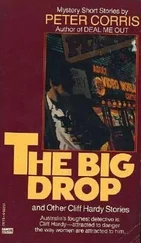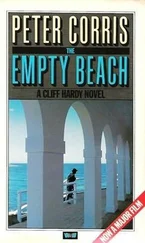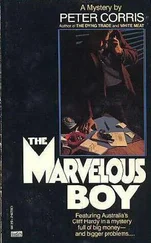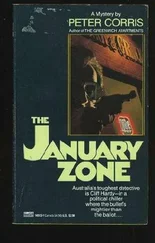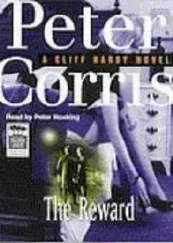Peter Corris - The Dying Trade
Здесь есть возможность читать онлайн «Peter Corris - The Dying Trade» весь текст электронной книги совершенно бесплатно (целиком полную версию без сокращений). В некоторых случаях можно слушать аудио, скачать через торрент в формате fb2 и присутствует краткое содержание. Жанр: Криминальный детектив, на английском языке. Описание произведения, (предисловие) а так же отзывы посетителей доступны на портале библиотеки ЛибКат.
- Название:The Dying Trade
- Автор:
- Жанр:
- Год:неизвестен
- ISBN:нет данных
- Рейтинг книги:4 / 5. Голосов: 1
-
Избранное:Добавить в избранное
- Отзывы:
-
Ваша оценка:
- 80
- 1
- 2
- 3
- 4
- 5
The Dying Trade: краткое содержание, описание и аннотация
Предлагаем к чтению аннотацию, описание, краткое содержание или предисловие (зависит от того, что написал сам автор книги «The Dying Trade»). Если вы не нашли необходимую информацию о книге — напишите в комментариях, мы постараемся отыскать её.
The Dying Trade — читать онлайн бесплатно полную книгу (весь текст) целиком
Ниже представлен текст книги, разбитый по страницам. Система сохранения места последней прочитанной страницы, позволяет с удобством читать онлайн бесплатно книгу «The Dying Trade», без необходимости каждый раз заново искать на чём Вы остановились. Поставьте закладку, и сможете в любой момент перейти на страницу, на которой закончили чтение.
Интервал:
Закладка:
“Is this all?” I asked Haines.
“Yes, I gave the people I contacted the material that affected them. There must originally have been about this much again.”
“How much money did you raise?”
“About twenty-five thousand dollars.”
I groaned and sat down on the bed. “You must have driven them crazy,” I said, “you said you marked some of the cops?”
“Yes, three, the really bad ones, they…”
“Spare me. You hit them for a thousand or so?”
“That’s right, roughly.”
“A fortnight’s takings, a month when things are slack. No wonder there was flurry from on high, they wouldn’t understand it. You were dead safe in a way. No copies?”
“No.”
“Of course not, wouldn’t be fair would it?”
“No.”
“You’re an idiot.” I snapped the case shut and got to my feet.
“Hey can I have a look?” said Tickener.
I fended him off. “Harry this is too hot to handle, I can’t let you have it.”
“What are you going to do with it?” There was pain in his voice and I remembered that he’d saved my life.
“Tell you what I’ll do mate, I’ll look through it, get out a crumb that won’t be traceable necessarily to this little box of goodies and give it to you. You can use it one quiet Wednesday when nothing’s happening.”
“What about the rest of it?”
“Burn it and let the bastards sweat.”
We went out to the cars. I got in the Falcon and motioned for Pali to sit alongside me. She did it, like a sleepwalker. Haines drove the VW. I locked the briefcase into a compartment under the driver’s seat. Tickener followed us along the track in his ancient Holden and we bumped down the road back to the highway. We drove to Katoomba like beads on a string with a set gap between us. I signalled a stop and went into a telephone booth for four minutes. It wasn’t a NIDA performance but it was good enough to set the wheels in motion. I walked back to Tickener’s car to check a few details of the story with him. We shook hands and agreed to meet soon for a drink. He pulled the Holden out and set off for his typewriter and coffee. It was midnight. We drove back to Sydney; Haines and the girl changed places at Central Railway and she drove off without a word.
I drove to Glebe, took Haines into the house and made some coffee. We talked around it a bit and confusion was the keystone of his attitude. He was a bit in love with Ailsa but too screwed up to know it. Any mention of his mother was like drawing a toenail. He was like a man with every layer of skin off except the last, tender to the touch at a hundred points, bleeding here and there where his obsession obtruded and teetering on a terrible abyss of pain. What I had to tell him pushed him over the edge and he fell, screaming silently inside his lonely, alien shell.
After that we sat quietly for a while drinking the last of the coffee. I called a taxi and he went back to what he had to call home.
30
I crawled out of bed around 10 am. It was one of those bright, cool summer mornings that Sydney specialises in. I made coffee, got the paper in and read it out in the courtyard. Tickener had made the front page again with his account of the discovery of Brave’s body. There were no pictures. Haines was mentioned as the owner of the property and I spared him a thought for the yarn he’d have to spin to the police, but we’d worked out an alibi — a phone conversation with his employer which I’d have to confirm with Ailsa today — in case he needed one. My guess was that he wouldn’t. The cops had no reason to disbelieve that Haines’ place had been picked at random for the revenge killing of Brave and no reason to connect Brave to Haines beyond the Gutteridge connection. I didn’t think they’d be very interested in probing that.
I went inside and phoned Ailsa. She sounded well and I told her I’d be in that afternoon.
“Is it over Cliff?” she said.
“It’s over.”
“Is it all right?”
“It’s all right for you.”
“And Susan?”
“It’ll never be all right for her. I’ll tell you all about it this afternoon love, be patient.”
“Not my strong suit as they say in the books.”
I asked her if the police had approached her and she said they hadn’t. I asked her to confirm Haines’ alibi and she said she would, but she never had to. I rang off and went back to the paper and another cup of coffee.
Tickener shared the front page with the latest cricket win. That seemed to call for a modest salutation. I hauled the wine and soda and ice out of the fridge, made a bacon sandwich and set myself up out in the yard. The biscuit factory was just tingeing the air with butterscotch.
I got the briefcase out of the car. I scrabbled about for some kindling and paper and stuffed it into the barbecue I’d built out of bricks pinched from here and there at dead of night. I poured a glass of wine and opened the case. After thumbing through the papers for a while I selected and set aside a newspaper clipping, a typed sheet and a photostat of a land title deed. The remainder of the papers I fed into the fire. I put the cassettes across the top of the grill and watched them melt like chocolate. The smell in the air was of plastic, laminated paper and corruption. I drank some wine, ate the sandwich and watched the thin, dark smoke from the fire threaten the unsullied purity of Soames’ whitewashed wall. The Gutteridge files were a heap of fine ashes interspersed with blobs of molten plastic when the fire died down. I pushed them about to make sure of the completeness of the destruction and slung the briefcase back into the car.
After a shave and a shower I went out and drew another hundred dollars with the credit card. I drove over to Paddington and rambled through the shops, eventually coming out with a djellaba in blue and white vertical stripes with a hood and drawstrings at the cuffs. I had lunch in a pub and drove over to the hospital.
Ailsa was sitting in a chair beside the bed. She was wearing a long, off-white calico nightgown cut square around the neck. I went up and kissed her on the mouth and then in each of the hollows of her shoulder bones. She smelted of roses.
“You look good, you smell good, you feel good.”
She put her arms up around my neck.
“More,” she said.
“You’re the queen of the world.”
I gave her the parcel, she unwrapped it and smoothed the robe out on the bed. She immediately began fiddling with the drawstrings.
She looked up at me. “It’s lovely,” she said. “Now tell me about it.”
I gave her all the details, it took a long time and she listened quietly, tracing patterns in the raised nap of the robe on the bed.
“What was the black girl’s motive?” she asked when I finished.
“Partly political. She’s some kind of nationalist, anti-British, anti-French, anti-Australian. And just about every bloody thing. You have interests in Noumea?”
She nodded.
“So has Susan I suspect. Your people must be stepping on toes over there, maybe it’s a genuine grievance, I don’t know. Anyway, she was here for a little private terrorism. But Brave got hold of her, something to do with drugs. Brave was an addict. Did you know that?”
“No. I’ll have to look into that.”
“The Noumea operation?”
“Yes.” She drew a deep breath and expelled it slowly. “Well, Mark started it all I suppose by keeping the files. There are a lot of casualties. What about the survivors? What did you mean about Susan never being right again?”
“That connects back to Ross,” I said.
“Obviously, what about him?”
I got up off the bed and moved around the room. I picked up one of her books and smiled at the dog ears at fifty page intervals.
Читать дальшеИнтервал:
Закладка:
Похожие книги на «The Dying Trade»
Представляем Вашему вниманию похожие книги на «The Dying Trade» списком для выбора. Мы отобрали схожую по названию и смыслу литературу в надежде предоставить читателям больше вариантов отыскать новые, интересные, ещё непрочитанные произведения.
Обсуждение, отзывы о книге «The Dying Trade» и просто собственные мнения читателей. Оставьте ваши комментарии, напишите, что Вы думаете о произведении, его смысле или главных героях. Укажите что конкретно понравилось, а что нет, и почему Вы так считаете.
